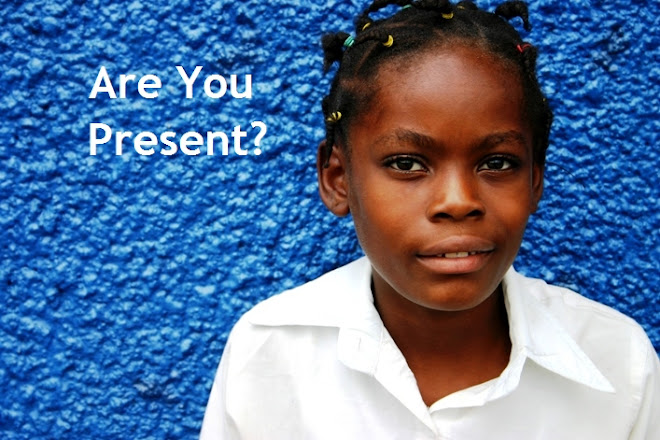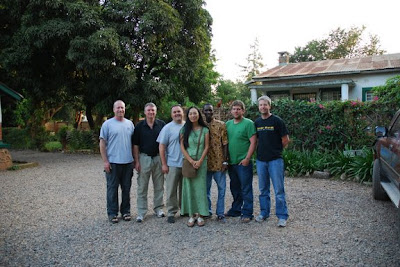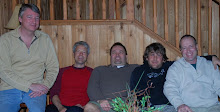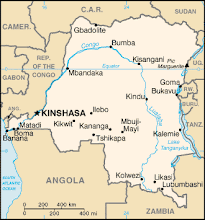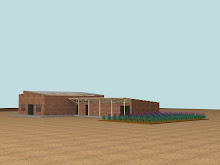
I've gone through my texts and notes scribbled on papers to gather all of those short little observations and bits of information obtained while they were in the DR Congo:
One night Desi was texting me and finally said he was still awake because of someone playing keyboard across the street. Then he texted me a while later and said- great, now the singers have started! And I wrote back that I didn't think he'd have trouble sleeping to music. He said he didn't but the music was so incredible he wanted to stay awake.


Before starting work on the school they spent a day fixing up Margaret and Dominic's house. They fixed the windows- rescreened them all (to better keep mosquitoes out) and fixed the broken glass.
The men did Home-Based Care as well along with the building project. I'm sure we'll hear more details of that when they get back. From the snippets I've heard things are very dire for families living there. But this isn't that much of a surprise. And some stories have already been posted of people they've come across. He says, "you don't understand- these kids have nothing. Just

nothing- and every one of those kids are laughing and smiling..."
The always-needing-a-translator has been a difficulty of the trip. Desi has already determined to take French courses (and we'll practice at home, of course) because he's already looking forward to going back but wants to be better able to communicate next time. Not everyone knows French either- but a lot more know French than English! And while doing home-based care and wanting to be encouraging to families... the difficulty of the situation is only compounded by the

language issues. Desi did say that he found it so much easier this time around to be encouraging even when faced with the devastating realities of life for them. This can be shocking and difficult at first.
He texted me one day about a little girl named Esperance. A very sick 8 year old with HIV. She was finally able to go on ARVs 3 months ago but was still extremely frail and sick in appearance.
Ruth had invited them over on several occasions for supper. Desi always remarked that she even had such great desserts. She was spoiling them with ice cream and mango puree or cheesecake. They also heard from her many stories of what it was like living there, especially in the early 90's. They were broken into and beaten by a mob of 15 men. Once, the older German missionary who, just passed away from cancer, was beaten into a coma lasting 11 days. But she never left. She just fortified her house. This is the house our men were staying in. It had a phone line connecting her to Ruth, It had a panic room. It had a switch in the kitchen that sounds a siren on the roof. It had metal bars and padlocks and locks of all sorts.... She spent the remainder of her time in DRC as secured as was humanly possible. But she didn't leave. And Ruth has weathered the difficulties... What kind of courage or patience or most of all HOPE would it take to stay?
Throughout their time there I've gotten texts about the water and power. Both were intermittent (email too) and on some days there was neither. Sometimes they wouldn't have water for days at a time. But Ruth took care of them, bringing them water and even heating it up for them to bathe. They are going through a lot of drinking water due to the heat, bottled or well-boiled. Desi said that water boils amazingly quick there. The difference in power voltage was very apparent.
The building projects in Africa are always a unique experience for our Canadians. They poured the

foundations, they had to do a lot of negotiating and exercise a lot of patience and diplomacy to get concrete for some of the work (due to the mines who use it all leaving little for anyone else). They rehired the contractor, Maurice, who'd started the preparations for them. He is, of course, knowledgeable and it seemed important that he remain in the loop since the project will be left still in need of a little work so he was rehired for two weeks and then they were going to negotiate a price for finishing the job.
There is another school on the block being built by World Vision. This is a bit of a complicated issue and came largely from a local man pitting one against the other. But peace and a relationship has been formed between World Vision and our guys who see that the need is greater than even both can fill anyway. The confusion is that the WV school is a school that one must pay to attend, with the money going to a church who will run it. Hands at Work only builds free schools and they provide a meal every day. It seemed important to Desi that they communicate. One thing Desi did was to see the plan for the other school and to modify the Hands at Work plan to have matching roof lines so that the two schools would relate to each other. World Vision didn't understand the significance of this at first, but Desi explained that already there is a bit of a class division going on in the community and yet there was a need to not further divide the community by education. So having the schools match, as they are right near each other was one way of trying to not distinguish the paying school from the free school. The local chapter of World Vision there understood and agreed. The relationship will be maintained by Farzam, another Canadian working with Hands at Work long-term.
They were told before leaving not to even bring shorts. Shorts aren't worn and can be insulting. On the first day they met Maurice, the contractor, he changed from his pants into shorts when he started work. So the following day- our team all showed up working in shorts too. They were SO grateful
given the heat to be allowed the freedom. While we were suffering Spring blizzards they were equally suffering end of Summer heat waves.

They went to a "market". It was actually just a shopping district of Likasi with little shops and storefronts. Dominic had to do the bargaining for them because of the language barrier. (I know this would have been a bit of a disappointment to Desi, bargaining is his favorite part) I'd asked him to keep an eye open for bushmeat- but he said they told him that it was only seen in outside areas, not seen very often anymore. They bought cloth.
They worked many long days and Desi spoke a lot about the corruption that was so much a part of normal life in a country with no economy, where real business is almost impossible. They would get bags of cement that had been opened and with some cement replaced with fine sand and the bag resealed. Corruption at every level. I'm sure we'll get an earful when they return. There were many meetings to negotiate all sorts of things and to build relationships... This has been one of the most difficult elements of life for Margaret and Dominic and they sometimes find it

insufferable, like Pastor's wives blatantly stealing food from orphans... just crazy stories. They are finding it increasingly difficult to trust anyone. This only encourages Desi about the need for teams to go in and help them out and strengthen them. They are living this reality and need all the support and help they can get.
Desi loves it there. He finds the corruption sometimes exhausting but also a familiar game that doesn't scare him out of liking the country. He said that even with the language barrier he can tell from tone of voice, eye movements and hand motions what is really going on and he's been able to navigate the waters. He describes the people as beautiful and he's met some really special and devoted and moral people. He loves the brightly colored buildings and the spirited culture.

Lots of dancing and singing... People walking everywhere. Little to no begging. And exciting, fun type of busy- more social and free. People are more reserved at first than in Zambia, but are very nice. A married man with kids is called "Papa", like sir. Even the guy you're negotiating with in the market. The kids put their right hand across their chest bow their heads and say "bonjour Papa." Women are called "Mamie." Desi loved this endearing element.
I got this text once. "So, if you run over a chicken or goat it's not your fault. But if you run over a duck, sheep or pig you have to pay to replace it. Law of Congo."

Every now and then we (the wives) hear reports of the men huddled around an iPod to watch a movie. Bob sat out of the first one to do some writing, but even just the other night I get texted that the 5 of them all watched a movie on Paul's iPod. This is a funny thing to picture, I think.
Anything else to add? Feel free to comment to this post.

